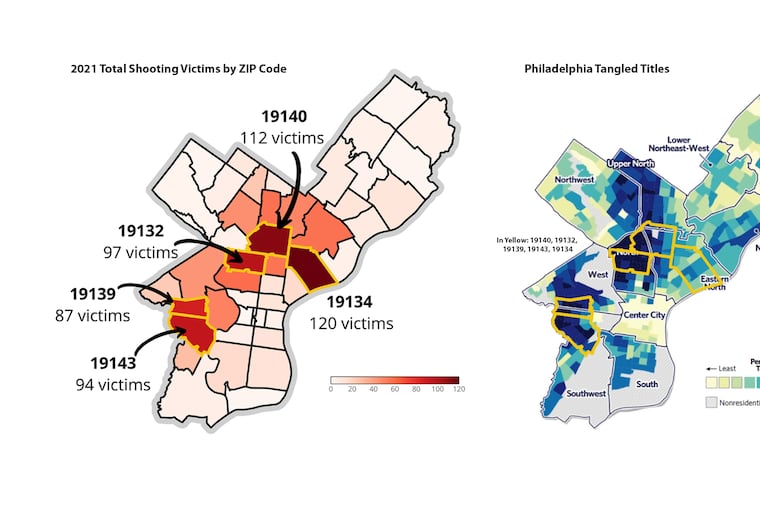Address Philly’s housing crisis by fixing ‘tangled titles’ for homeowners | Editorial
Some Philadelphians are unable to access the basic resources they need to stay in their homes because of so-called “tangled titles."

Even before the emergence of COVID-19, Philadelphia was having a particularly difficult time providing affordable housing for the city’s neediest residents. By this spring — 13 months into the pandemic — there were 65,000 households on the Philadelphia Housing Authority’s waiting list. Faced with those daunting numbers, affordable housing advocates and others have repeated a mantra that the most cost-effective living options for city residents are usually the homes where they already reside.
But some Philadelphians are unable to access the basic resources they need to stay in their homes — such as homeowner’s insurance, or programs that help with free home repairs — because of so-called “tangled titles,” a term advocates and policy researchers use to describe situations where the legal owner of a property is unclear.
The most common cause of tangled titles is when a homeowner dies, and their heir or heirs fails to record a new deed. This can happen because of inheritance disputes or an inability to pay court costs. In some cases, it occurs simply because heirs are not aware of what’s required to transfer the title. According to an analysis by the Pew Charitable Trust’s Philadelphia Research and Policy Initiative, slightly more than 10,000 homes are affected by tangled titles in Philadelphia — or about 2% of the city’s roughly half-million residential properties — a figure that Pew says is almost certainly an undercount.
» READ MORE: Philly’s violence crisis can be reduced by tackling our housing repair crisis | Editorial
The lack of a clear title can limit access to programs designed to help those who are most in need. Homeowners with untangled titles can access the Basic Systems Repair Program, a city-funded effort that provides free home repairs, or apply for energy audits and weatherization through the city’s utility companies.
The perils of unclear titles don’t just fall on individual homeowners, they can also reverberate through their communities. In Philadelphia, there is a higher share of residents living in rowhomes than any other major American city. This means that issues in one home can often spill over to others — if maintenance issues cause a property with a tangled title to become abandoned, it can end up blighted or demolished, which can have a domino effect on home values up and down the block. Given the positive impact of the Basic Systems Repair Program’s work on reducing neighborhood violence, it is clear that the ripple effects from dilapidated homes can cascade across entire neighborhoods.
» READ MORE: Philadelphia home repair grants linked to decreased neighborhood crime, Penn study finds
Register of Wills Tracey Gordon has been assertive in tackling this issue. Alongside Records Commissioner Jim Leonard, Gordon has implemented programs like deferring the probate fee, which are designed to encourage more people to file the proper paperwork after a death in the family. But Gordon says that more needs to be done to raise awareness of the issue, especially in terms of educating families about their rights and responsibilities after a death and encouraging more people to write a will.
It’s clear that tangled titles represent yet another leg of the disinvestment crisis that has left so many Philadelphia neighborhoods behind. Untangling this bureaucratic knot could be another key to unlocking wealth, securing affordable housing, and investing in neighborhoods that need it most.